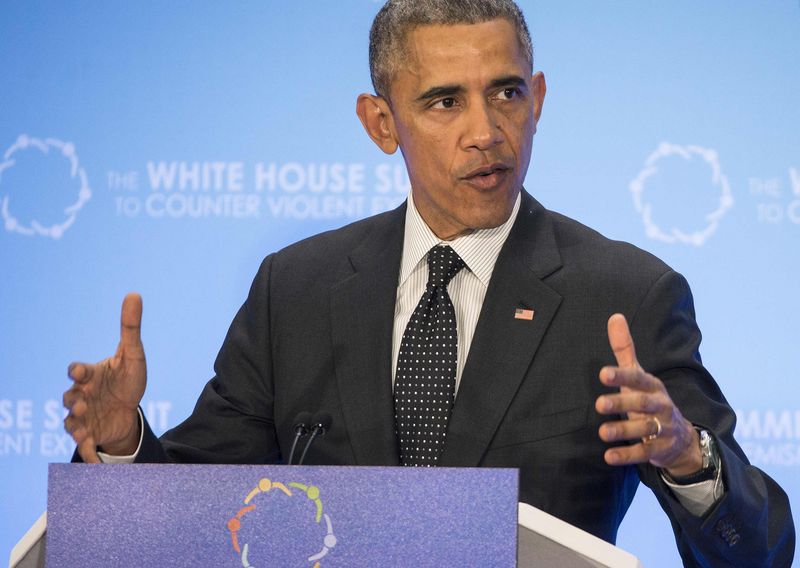By Jeff Mason and Sarah N. Lynch
WASHINGTON (Reuters) - U.S. brokers and financial advisers would face new constraints under a plan President Barack Obama put forward on Monday to reduce conflicts of interest and "hidden fees" that cost Americans billions of dollars in retirement savings every year.
In proposing the rules, Obama said he sought to protect Americans from being steered into costly retirement investments that produced high commissions for brokers but low returns for investors preparing for retirement.
Democrats and Republicans are trying to position themselves as champions of the middle class in the run-up to the November 2016 presidential election. Retired seniors are an important voting bloc.
The proposed rules, which the Department of Labor is expected to submit formally in the coming months, will inject political pressure into an already intense debate over brokers' obligations.
They would have an impact on thousands of brokerages, from large players such as Fidelity, Wells Fargo (N:WFC), Charles Schwab (N:SCHW) and Raymond James (N:RJF), to smaller, independent shops.
Brokers would be held to a higher "fiduciary standard," requiring them to put their clients' financial interests ahead of their own.
The White House said the proposals target fees and payments that on average lead to a full percentage point lower annual return on retirement savings at a cost to Americans of $17 billion a year.
In particular, Obama called for new rules preventing retirement brokers from steering clients' savings into funds with higher fees and lower returns, or advising clients to roll their funds over into higher-cost plans.
Speaking at an event hosted by the AARP Inc, formerly known as the American Association of Retired Persons, Obama said, "It's a very simple principle: You want to give financial advice, you've got to put your client's interests first. You can't have a conflict of interest."
The proposal is opposed by many Republicans, financial firms and some of Obama's fellow Democrats who fear the plan will limit retirement products available to investors and curb brokers' compensation.
Wall Street groups have lobbied for years against efforts by the Labor Department to adopt a new fiduciary rule, forcing the department in 2011 to scrap its first draft of the plan.
Secretary of Labor Tom Perez said on Sunday in a call with reporters that the new proposal would incorporate feedback from the previous failed attempt.
"We expect that the proposed rule will not ban commissions or any common compensation practices, and it will allow financial advisers to continue providing general education on retirement savings," he said, citing some of the differences with the previous proposal.
The industry is predicting rapid growth in retirement accounts. Boston-based Cerulli Associates said that in 2013, U.S. investors rolled over an estimated $352.9 billion into IRAs from employer-sponsored retirement plans. New rollovers from such plans will balloon to an estimated $546.1 billion in 2019, Cerulli said. IRAs are individual retirement accounts.
MIDDLE-CLASS ISSUES
Reform advocates welcomed the announcement.
"The president's involvement ... on this issue from our perspective is a very positive sign," said Shaun O'Brien, an assistant policy director for health and retirement with the AFL-CIO, a federation of labor groups.
Massachusetts Senator Elizabeth Warren, a consumer advocate who some Democrats hope will challenge Hillary Clinton for the party's presidential nomination, joined Obama at the event.
The speech prompted swift reaction from Capitol Hill.
Missouri Republican Representative Ann Wagner, the sponsor of past legislation to delay the Labor Department's efforts, pledged to put forth new legislation later this week to "preserve options for Americans to obtain financial advice."
In 2013, Wagner's prior bill generated some bipartisan support and passed in the House by a vote of 254-166.
Some Democrats who supported that bill have since shifted. Representative John Delaney of Maryland, who attended the event with Obama, told Reuters in a statement on Monday that since the bill passed, "reams of additional data have been released" showing the need for new rules.
DIFFERENT STANDARDS
In their pushback against the Labor Department's efforts, Wall Street groups have also cited a lack of coordination with the Securities and Exchange Commission.
The SEC and the Financial Industry Regulatory Authority oversee largely the same pool of brokers as Labor, but they have different legal regimes.
The SEC for years has considered adopting its own uniform fiduciary rule for retail brokers and advisers, but remains divided.
Under current SEC rules, advisers are held to a higher "fiduciary" standard while brokers are held to a lower "suitability" standard, meaning they must sell "suitable" products even if they are not the most cost-effective.
Ken Bentsen, president of the Securities Industry and Financial Markets Association, said the SEC is the appropriate entity to consider any new rules, and called the White House's research supporting reforms inadequate.

Bentsen said Obama's announcement "juts a lot of politics into what is a very serious matter."